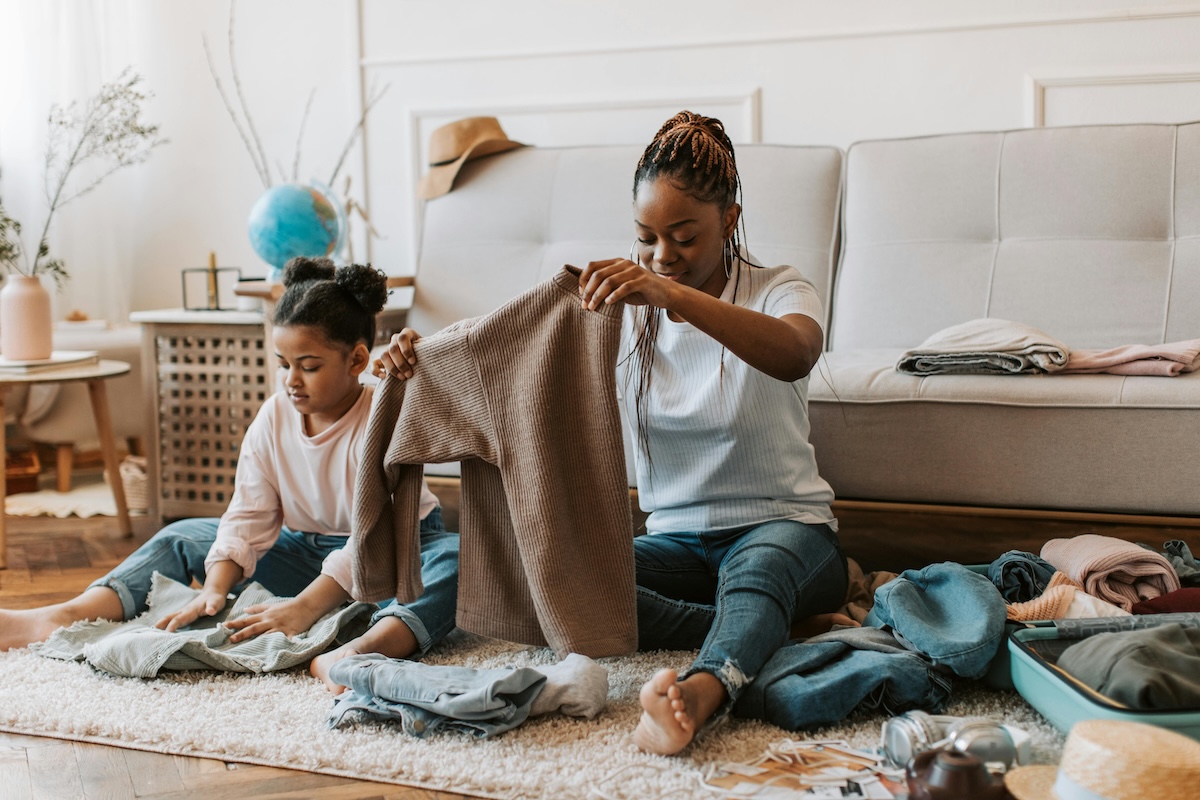This article was originally written when I was contemplating the question of whether my children should get an allowance. Spoiler alert: we ultimately decided yes. They get a small allowance each week and, within reason, control over what they spend it on.
We’ve left the article as is, so you can see the thought process in real time. If you do decide yes, I would highly recommend the Greenlight card (and app).
My older child has been asking for an allowance for years. I have been giving versions of a standard parenting answer: “We’ll see”; “Let’s discuss it later”; “I’ll try to remember to talk about it with your dad.” And so on. Finally, she called my bluff, and my last argument was: “I’ll write about it in the newsletter.” But once I said that, she started asking every day whether I had written the newsletter yet.
This topic is, therefore, more or less an answer to a reader question. Just, the reader is me.

When Penelope first raised the issue, I imagined there was no good data. Of course, despite this instinct, old habits die hard, and my first move was to go to the academic literature. I was perhaps hoping that some piece of data would be definitive in one direction or the other. It wasn’t.
A Google Scholar search for “child allowance” yields many results, but they turn out to all be about child tax credits. I found an interesting article in a law review about how the writer thought about allowances for her children and a somewhat dense review arguing that children are an important part of the economy. The one piece of academic literature I gleaned something from was an article suggesting that, in a laboratory experiment, children who were given allowances had a more sophisticated understanding of budgeting. I wasn’t convinced that this relationship was really causal, though. Was it the allowance that mattered, or something else about how the parents communicate about money? Also — for better or worse — my kids are surrounded by economics all the time, allowance or no.
Like most older-kid problems, this one comes down to some version of the “Four F” decision-making process I talk about in The Family Firm. Which starts with framing the question.
Framing this question and going beyond where I started (“Should my kids get an allowance or not?”) required a fair amount of thought. In particular, it required me to think about why I am resistant. My visceral instinct is that the answer to the allowance question is “no,” even though our family is lucky and an allowance of a few dollars a week wouldn’t be a burden.
In fact, I have two big concerns here. The first is that I am not sure I want to give my kids the impression that they are entitled to get money for nothing. For a lot of parents, the solution is to give an allowance in exchange for chores. There’s a bit of survey data on allowance giving. About 80% of parents give allowances (at least in this particular survey), and about 80% of that group require children to do chores to get them. This strikes me as a completely reasonable use of allowance — you’re contributing to the family, and it is compensated.
This doesn’t translate well to my family setup, though. My children do some chores, but they are mostly in the space of cleaning their own messes. I see their tasks as a baseline contribution to family life. No one pays me to bring my plate to the sink or clean up my mess in the craft room, and I do not want to pay them for that either. For me, I cannot see a good way in our house to structure an allowance around chores, which is why I am worried about the “money for nothing” piece.
My second concern is that if we do this, they will use the money to buy junk, and I do not like having junk in my house. Or they’ll use it to buy stuff in apps, and my soul will die a little when I realize that someone in my house just paid $2.99 for a Sparkling Mermaid Treasures glam package in the Barbie Fashion Closet app.
At the same time, I reflected on the current situation. When I think about the question “allowance or not,” what I really mean is “allowance or stick with what we do now.” And the current status quo has its own problems. Importantly, I already do buy my kids stuff. You know how I know that the Barbie Mermaid Treasures package is $2.99? It’s because I bought it. I may wish I behaved differently, but that is not the question on the table.
Taking these considerations together, I realized a much better question framing for me was: Should my kids get an allowance instead of something we are doing now, or should we stick with the status quo?
The clarity I reached in this framing was that if we are going to do an allowance, it will be instead of the haphazard status quo purchases.
For example: when one kid asks me to buy him something in an app, I decide in the moment based on … well, honestly, nothing in particular. Usually a vague memory of whether I have done it recently. This isn’t a great system. Instead, I could give the kids an allowance and structure it as “This is the funding you have to purchase apps, toys, etc.” And then I could say no if they didn’t have funds.
When I frame it like this, my instinct is to favor the allowance. To go a little economics, this made me realize that at the moment, my kids are planning their purchases against an uncertain budget constraint. But that makes it difficult to fully optimize. What if my kid prefers the Elemental Dragon add-on in Dragon Mania Legends rather than the Mermaid Treasures add-on in Barbie Fashion Closet (I promise these are real things)? The current system incentivizes him to ask for both of them, usually on varying days, since he never knows when I’ll say yes. What if I say yes on Barbie day? He’s happy to get it, but he could have been happier. We haven’t optimized.
Inserting a fixed budget constraint could force the kids to reflect more on their own preferences, which might be good — you know, for their economic utility. Also, there might be less whining.
So now I’m leaning toward an allowance. The final decision hasn’t been made yet. For one thing, I have to talk to Jesse, and he doesn’t read the newsletter on a regular basis.
I’m also thinking about some logistics. I do not like the idea of having to hand out cash. My current best idea is a Google Sheet bank that I add to each week and subtract from for purchases. But there’s much to decide about, even within that. Do they earn interest? Should I let them invest their money? Is this an opportunity to finally get our family into Bitcoin?
Stay tuned, and I will let you know.
Community Guidelines
















Log in
Loved this article! For what it’s worth (probably not a lot) I completely concur with your final position that it’s valuable to teach kids the value in having a finite amount of discretionary spending.
When I was a child my siblings and I received allowances from our parents, however it was so meager that we never spent it because 4 month’s allowance would get us a booster pack of Yu-Gi-Oh cards (we’re talking 12 cards, only 2-3 of which were usually any good), at which point we all kinda reached the conclusion of “why bother?”. I distinctly remember my siblings and I pooling together our allowances to go into debt (!!!) to buy a Lego castle set (we spent something like 8 months of our combined allowance, and 4 months of future allowance). Being in debt was such a negative experience that we basically never spent money after that and just banked it, and ended up just getting a lump sum from our parents when we all variously got our first jobs. This approach certainly taught us the value of frugality, but not about the value of buying things when you need them!
Ironically (or appropriately) it was only when I was taking my first economic classes in undergrad and learned about the concept of discount rates that I began to understand that sometimes it’s better to spend money in the short term than always save it.
I’m sure personality and other factors (my parents placed enormous value on frugality, having been quite poor for a good chunk of their lives) that impact whether you need to be encouraged to spend or to save, but in our case as children it actually would have been helpful to be encouraged to spend a bit more.
Can anyone else relate to this experience I did I just grow up in a way more frugal household than most?
just wanted to pop in and say I loved this newsletter! so many factors to think about!
We also ask our kids to do regular clean up like bringing dishes to the sink. But we’ve occasionally done bean jars, where they accumulate beans based on special tasks (eg facing fears in swim class), and one of our intermediate awards for getting to a certain level in the jar was a $50 spending spree at Target, their choice within reason.
When we’ve given something like an allowance, like $5 to spend on optional snacks at summer camp, we do it in cash. I’m not sure I understand the resistance to cash. I find it actually helps me budget better as an adult. I typically use cash for small purchases, and if I’ve just gone to the ATM and realize I’ve blown through a lot in a short period of time, that’s more visible to me than the balance on my credit card. I definitely prefer it for kids.
This was interesting to read from my perspective where an allowance is so obviously good, but I don’t know what my husband thinks (our kid is 2). My mom started giving me an allowance when I was 5 ($0.50 in 1990, approx the cost of a pack of gum). It went up every year and by the age of 11 or 12 I had successfully argued for $10 a week if I saved $4. I spent most of my money on beanie babies and going to see movies. It was nice being able to decide for myself how to spend my money, although the total amount seemed limiting at times (I remember asking for advances so I could go see another movie, but in retrospect that was prob 1999, the year of so many movies). The allowance was NOT in exchange for chores, which were expected already. It was just to empower me to take charge of my spending within a given limit.
As a follow up, I had an actual bank account to put that $4 in. I think my mom just transferred it from her account to mine and gave me $6 in person.
My mom did something similar with my sister and me. We had a “rule of thirds” – one third long term savings, one third short term savings (save for more expensive purchases like Nintendo), one third immediate. As adults both of us are able to budget well. I feel it taught me to deeply consider purchases rather than spend frivolously because of the finite amount of money I had. I also had quite good savings by my mid 20s thanks to this!
I found this article really helpful when I was contemplating an allowance for my older kid. We’ve been following it’s suggestions for a few years now, for two kids, and it’s worked really well for us: https://www.nytimes.com/2019/10/04/your-money/weekly-allowance-average.html